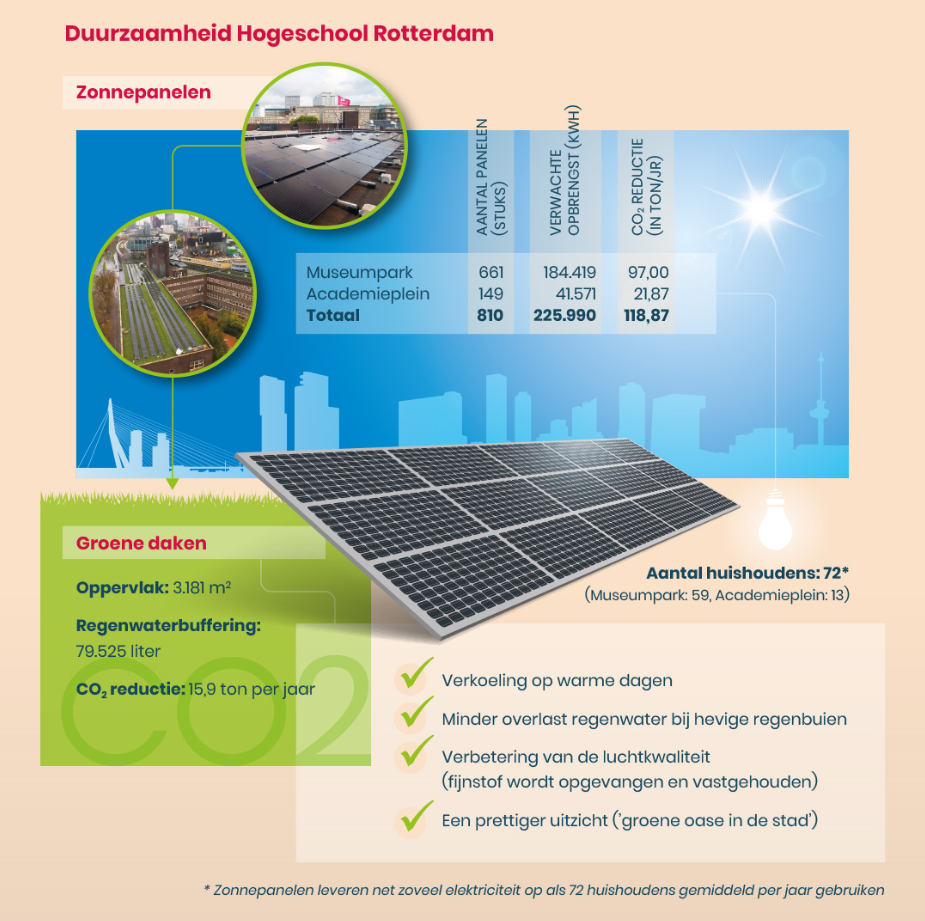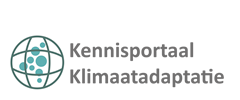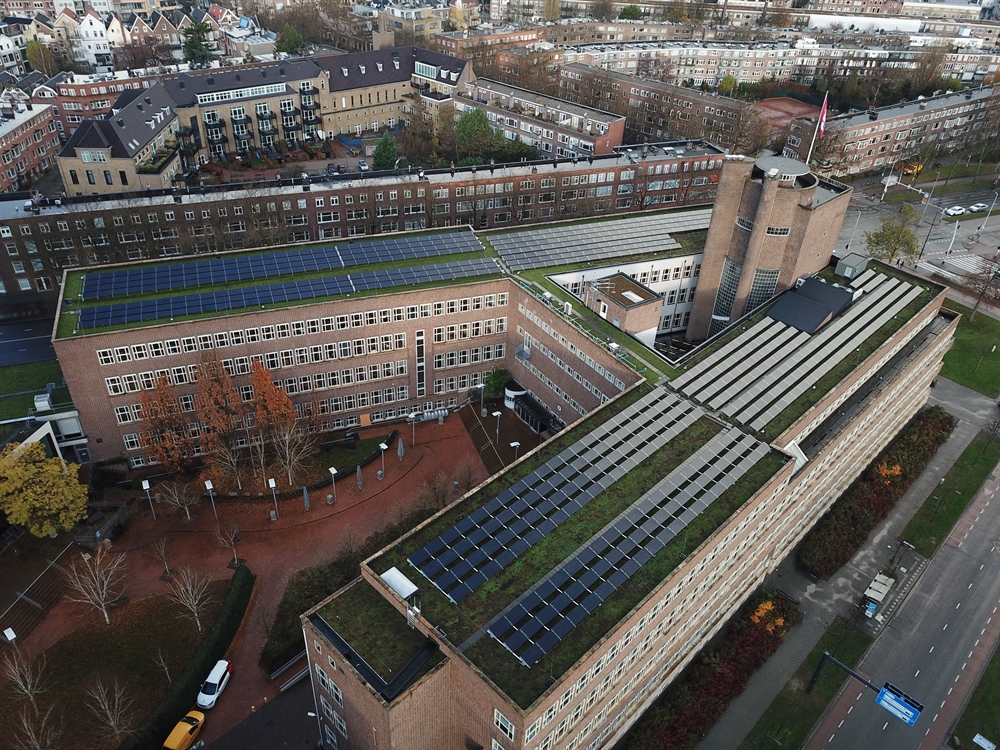Rotterdam UAS: roof garden covered in solar panels
In the city of Rotterdam, increasingly frequent severe downpours tend to overburden the sewer system. In order to lend the city a helping hand, Rotterdam University of Applied Sciences has had roof gardens constructed on top of two of its buildings. Solar panels were also placed on the roof tops. The vegetation absorbs rainwater, which significantly reduces the volume of water running off into the sewers. And the university uses the solar panels to generate its own electricity.
What does the university intend to achieve with the roof gardens?
A roof garden with solar panels enhances the sustainability and climate resilience of the building in a range of ways. These are the main benefits of a roof garden with solar panels:
- The university uses the solar panels to generate its own electricity;
- The roof garden vegetation can retain 25 litres of rainwater per m², which significantly reduces the volume of water running off into the sewers;
- Both the vegetation and the solar panels help to cut down CO2 production: the vegetation converts CO2 into oxygen, whilst solar panels generate energy without producing CO2;
- The vegetation helps to cool the rooftops and reduce heat;
- The vegetation improves the air quality by collecting and retaining particulate matter;
- The cooling effect of the green rooftop enhances the operation of the solar panels;
- The rooftop construction provides better insulation, during both summer and winter.

How has the roof garden been constructed?
The roof garden qualified for a municipal grant. Several factors had to be taken into consideration with respect to the construction of the roof garden:
- The fairly new roof covering of the existing roof had to be properly inspected;
- The roof first had to be covered with root resistant cloth;
- The building is listed as a historic monument;
- On account of the light roof construction, the materials had to be placed with utmost care. Furthermore, the work had to be carried out during the night, in order to avoid any nuisance to students and teachers, and prevent the cranes from jeopardising public safety;
Proper coordination between the installation of solar panels and the construction of a green rooftop requires a great deal of attention.
Contact person
Desiré de Jong
Hogeschool Rotterdam
Communicatieadviseur
d.m.de.jong@hr.nl

